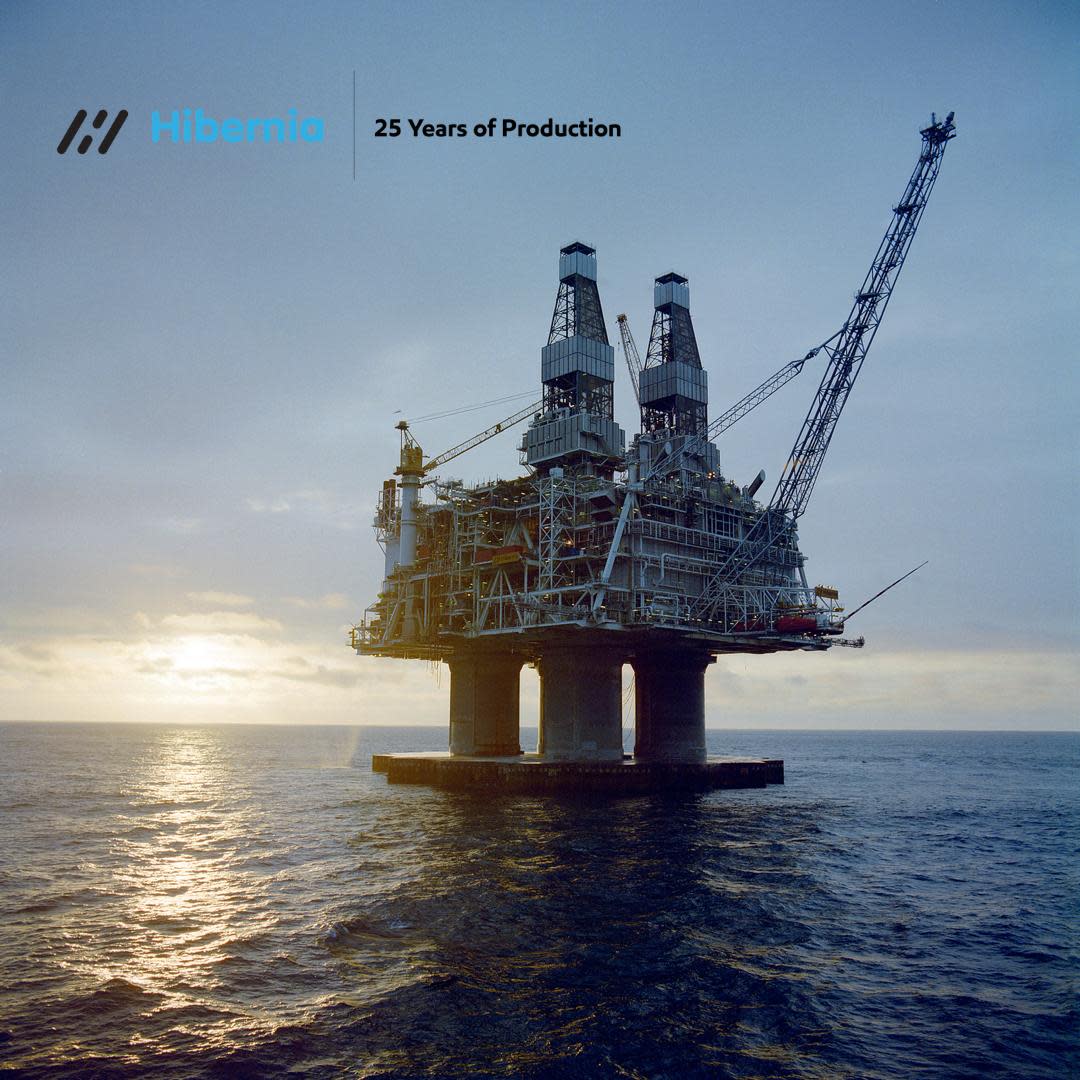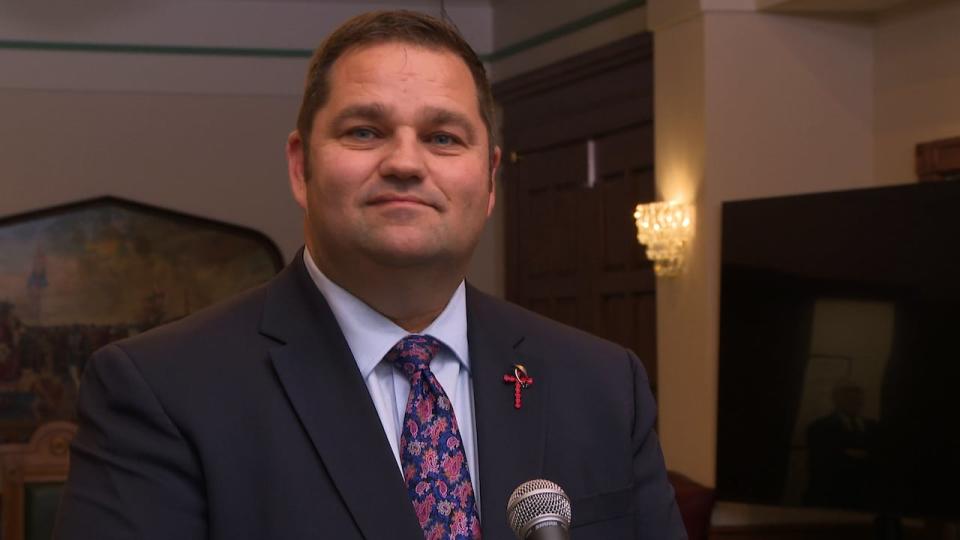What do Ottawa's strict new emissions rules mean for N.L.? No one's really sure


The federal government has released its emission cap framework but how it could impact oil projects in Newfoundland and Labrador, like Hibernia, is unclear. (ExxonMobil Canada)
The federal government has announced its regulatory framework aimed at capping oil and gas emissions across the country — but no one seems to know what that exactly means for Newfoundland and Labrador.
The framework proposes to cap 2030 emissions at 35 to 38 per cent below 2019 levels as part of the national plan to reduce carbon emissions in the sector to net zero by 2050.
It would apply to industries involved in exploration, drilling and extraction of crude oil and natural gas, which includes Newfoundland and Labrador's offshore industry.
Minister of Environment and Climate Change Bernard Davis said his staff is reviewing the federal framework.
"I guess the devil will be in the details to see how that fits with respect to each jurisdiction. It is a national framework, so each jurisdiction is going to be affected slightly differently," Davis told reporters.

Minister of Environment and Climate Change Bernard Davis says his staff are currently reviewing the proposed framework. (Peter Cowan/CBC)
"Our staff are working very hard and will be in constant contact with [their] federal colleagues to ensure that Newfoundland and Labrador is treated fairly in that framework."
He also said the province already has the Management of Greenhouse Gas Act, which guides the industry to set baselines for emissions reductions, adding that emissions have fallen over the last four years.
Up in the air
CBC News contacted a number of stakeholders in the oil and gas sector for interviews about how the proposed emissions cap could impact operations.
Energy N.L. declined to speak on what the cap means for its members until it has more information.
In an email, Equinor spokesperson Alex Collins said the company is currently reviewing the documents to understand how the proposed framework could impact its operations.
Similarly, Cenovus and Suncor directed CBC News to a statement from Pathways Alliance president Kendall Dilling, which stated the company would "take the necessary time to analyze the government's emissions cap framework to determine how it may impact oil sands operations."
Not a flipped switch
Econext CEO Kieran Hanley said the framework is still a proposal that will need to be discussed and its exact regulations developed, which will take time.
"But how it impacts Newfoundland and Labrador, it is kind of too early to say," he told CBC News.
Hanley also cautioned against jumping to conclusions on how it could impact the industry.
"Really, these are frameworks the federal government is trying to put in place to really achieve net zero by 2050. So it's not as if a switch is flipped and things change overnight."

Econext CEO Kieran Hanley says it's too early to predict how the framework could impact Newfoundland and Labrador. (Lindsay Bird/CBC)
In the federal report is an acknowledgement that Newfoundland and Labrador is different from other provinces because it has an offshore oil sector, added Hanley, "So the greenhouse gas emissions total emanating from Newfoundland and Labrador is just a fraction of what occurs in the rest of Canada."
Hanley also suggested the oil produced off the province's coast is more environmentally efficient than what's produced in other parts of the country. It's possible that if the framework rolls out, its impact on Newfoundland and Labrador won't be as significant as people may fear, he said.
He also pointed out potential for economic opportunities in Newfoundland and Labrador to attract investment toward negative greenhouse gas emissions projects.
Close loopholes
Sierra Club Canada head of communications Conor Curtis said while the framework is a good first step, he wanted to see the federal government go further to tackle emissions.
It's also something he'd like to see implemented quickly and come into effect sooner than the phased-in target of 2026.
"This has been something that the Trudeau government has had in its mandate for a long time now. And unfortunately, what we've seen is repeated delays on the emissions cap, in large part because of oil and gas industry lobbying," Curtis told CBC News.
In the framework is the possibility for oil and gas companies to be able to buy carbon offsets from other producers or contribute to a decarbonization fund.
That's something Curtis identified as a loophole that needs to be closed, and he says he'd like to hear more specifics about the decarbonization fund and how it will work.
Download our free CBC News app to sign up for push alerts for CBC Newfoundland and Labrador. Click here to visit our landing page.


